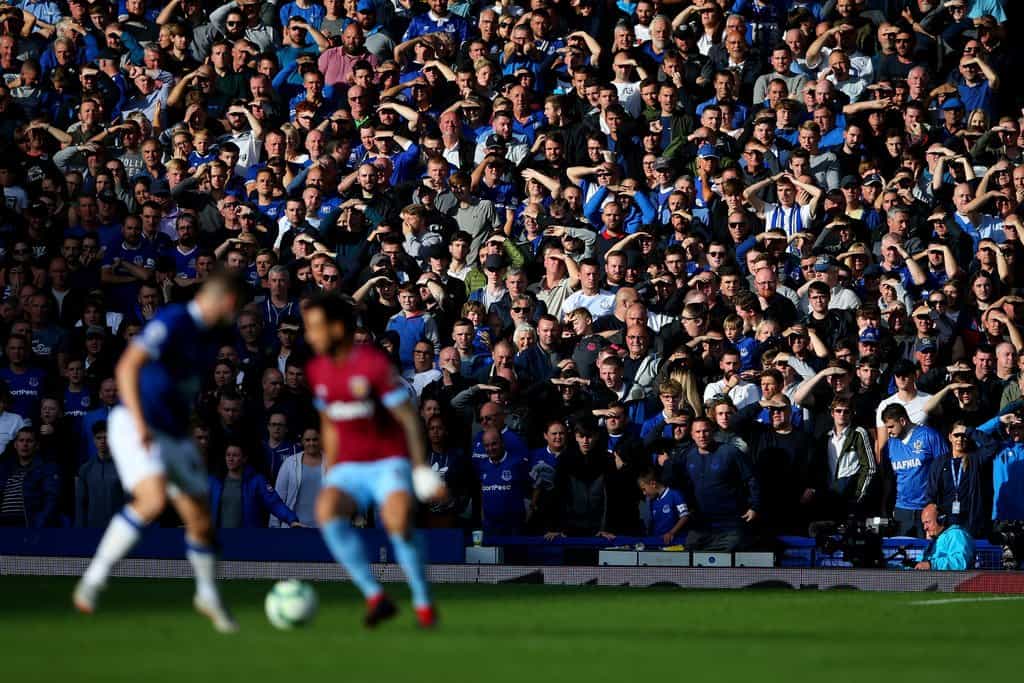In contemporary psychology, there is a theory known as dichotomous – or ‘black and white’ – thinking. In essence, this refers to people who tend to have black and white views on a subject, i.e. these tend to be polarised between extremely good or bad, all-or-nothing, the best or the worst. Indeed, in an age of social media uproar, it’s a mentality that is undoubtedly spreading.
Football fans, in particular, can be prone to dichotomous thinking. Often, it never rains but it pours in the beautiful game, even when – relatively speaking – so-called problems are not really that much of a big deal.
It’s a topic that Everton fans will be familiar with too. Let’s face it: the Toffees’ issues are small-fry compared to many clubs in the Premier League and beyond, and yet they could be forgiven for feeling more-than-a-tad frustrated at their side’s one-step-forward-two-steps-back routine.
However, is the current situation really that bad? Let’s examine the numbers in more detail.
The Whole Truth, And Nothing But
The league table never lies: there’s a piece of dichotomous thinking that has dogged football for decades.
There is a grain of truth in the statement of course, and Everton’s position of sixteenth – just two points above the relegation zone – does make for grim reading. The black and white thinkers will be looking at their side’s goal difference of -6 after just ten games and fearing the worst. But for those who see football in the glorious technicolour that it deserves, the underlying data suggests there are reasons to be, well, not cheerful as such but certainly less pessimistic than the table suggests.
Take a look at the Expected Points standings, supplied by sites like Understat, and something alarming leaps off of the page: Everton, based on this unique performance metric, currently rank in fifth place. Now, we know what you’re thinking if you are of a dichotomous disposition: that all means diddly squat in the grand scheme of things. There are no trophies given out based on theoretical arguments – just cold, hard and black and white facts.
But let’s examine precisely what Expected Points, or xP as you may see it displayed, references. It’s the theoretical outcome of a match based on the quality of chances created against the quality of those yielded, with points dished out according to this ratio. So, this cold, hard stat dictates that Everton are unlucky to be where they are in the Premier League table. It’s all happenstance and conjecture, of course, but there are two main reasons for this conclusion.
The first is that Everton are creating plenty of high-quality chances but simply not putting the ball in the back of the net. And when you look back at Everton’s ten games so far, you can kind of agree with that theory – the Toffees’ lack of a natural goal-getting striker is coming home to roost.
At the other end of the pitch, only five sides in the top-flight have a better ‘Expected Goals against’ record than Everton. In short, Marco Silva’s men are conceding unlucky and low-frequency goals – Lucas Digne’s bizarre own goal against Brighton on Saturday being the perfect case in point.
Pundits and punters alike use Expected Goals data to give them a better picture of how teams are performing, and they will be viewing Everton’s 14/1 odds of relegation this season as absolute hokum. Indeed, the 10/11 odds of the Toffees securing a top-10 finish, which are available in the football betting at Space Casino, is a lot more appetising.
So are Everton as bad as the league table suggests? Absolutely not….although it might depend on your individual psychology as to whether you agree with that statement or not.


